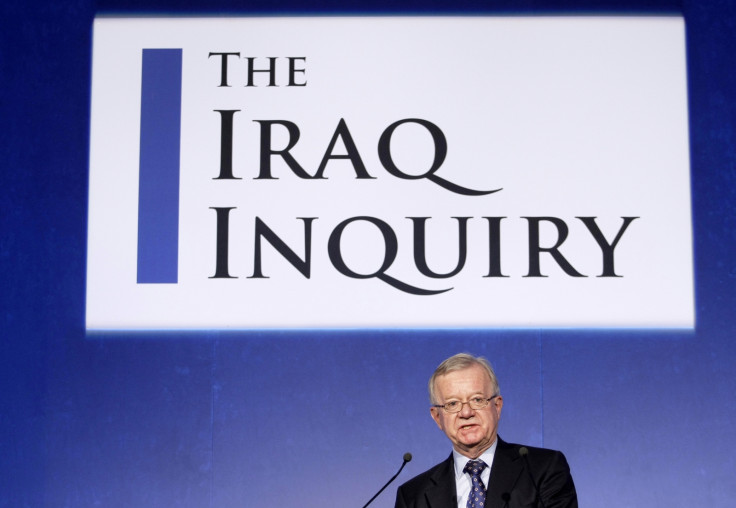Chilcot Report: Iraq War inquiry publication details 'to be announced soon'

Sir John Chilcot has confirmed he has received the last of his 'Maxwell' responses to his much delayed report into the Iraq war and he could reveal the date of its publication soon.
Chilcot, head of the inquiry into the 2003 Iraq war, wrote to the House of Commons to say he intends to write to Prime Minster David Cameron to announce a timetable for publication "as soon as I am able".
The delay of the publication of the report has been heavy criticised by MPs and the families of those who died in the war. David Cameron previously said he and the British public are "fast losing patience" with report, which was expected to published three years ago.
The long wait is due to a process known as "Maxwellisation" which allows every person who may be face criticism in the report − one of whom is expected to be former prime minister Tony Blair − the chance to respond.
In a letter to the Foreign Affair Committee, Chilcot said: "As I am sure you are aware, on 26 August I made a public statement in response to some of the comment and speculation about the Inquiry over the past weeks. A good deal of that comment focused on the Maxwellisation process, in which I know that your committee has a keen interest.
"In my statement I said that the Inquiry expected to receive the last Maxwell responses shortly. I am pleased to confirm that it has now done so.
"There is, inevitably, further work for my colleagues and I to do to evaluate those submissions, which are detailed and substantial, in order to establish with confidence the time needed to complete the Inquiry's remaining work. As soon as I am able I shall write to the prime minister with a timetable for publication of the Inquiry's report."
The Chilcot Report, which heard from its last witness in 2011, has been looking into the reasons the UK got involved in the 2003 invasion of Iraq and the lessons learned from it. Following the ousting of the country's former dictator Saddam Hussein, British troops remained in Iraq until 2009.
© Copyright IBTimes 2025. All rights reserved.





















